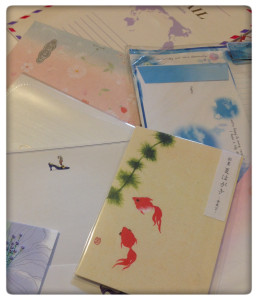Life After JET: Take Pride in Your Choices
Check this excerpt from blogger and podcaster Jon Dao (Toyama-ken, 2009-12)!
 Decision-Making
Decision-Making
Two years ago I made a choice. Having to choose can suck.
I was working a comfy teaching gig overseas. The good was good. I didn’t have any problems with my co-workers. In my third year, the kids were probably the best I’d ever seen. I remember there was a point in time I even thought I loved my job. But as time went on something felt “off.”
Some people talk about a “calling.” Well, I felt something along the lines of moving on to “bigger and better.”
Read the rest at BostonUrbanNews.com
CLAIR Magazine “JET Plaza” series: Ari Kaplan (Hyōgo)
Each month, current and former JET participants are featured in the “JET Plaza” section of the CLAIR Forum magazine. The September 2013 edition includes an article by JET alumn Ari Kaplan. Posted by Celine Castex (Chiba-ken, 2006-11), currently programme coordinator at CLAIR Tokyo.
*******
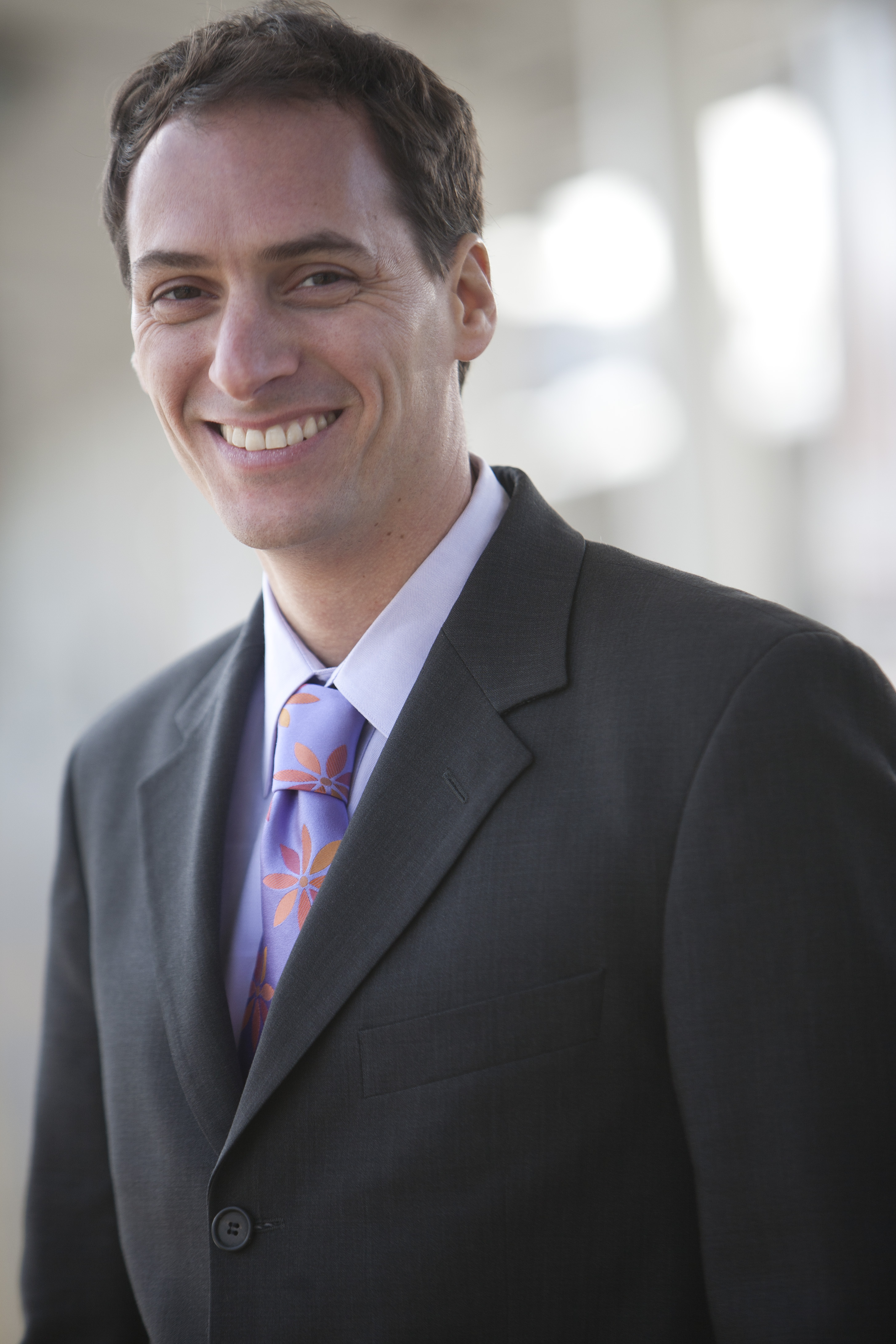
“I still remember the ceremony […] held for departing JET participants when I left my position as an ALT. […] I distinctly recall advising the audience members that I was leaving so that I could return someday.”
Originally from the US, Ari Kaplan (Hyogo-ken, Suzurandai, 1993-94) came to Japan upon graduating from Boston University. He is now a business consultant in New York City and the author of Reinventing Professional Services: Building Your Business in the Digital Market Place (Wiley, 2011), which Akishobo recently released in Japan as ハスラー――プロフェッショナルたちの革新. Learn more at AriKaplanAdvisors.com.
JET Perspective
I still remember the ceremony that the Hyogo Prefectural Board of Education held for departing JET participants when I left my position as an ALT at Kobe Kohoku High School in 1994. The host asked each of us to line up facing the audience, pass a microphone to one another, and share our reason for leaving. I distinctly recall advising the audience members that I was leaving so that I could return someday.
When Akishobo translated my second book, Reinventing Professional Services: Building Your Business in the Digital Workplace (Wiley 2011), into Japanese and released it in Japan last fall, I felt like I had somehow kept my promise. I was also excited to have the opportunity to publicly dedicate it to the JET Programme and the Hyogo Prefectural Board of Education.
I was only 20 years old when in July 1993, following my graduation from Boston University, I took that Japan Airlines flight from New York to Tokyo. Jetlagged the day after I arrived, I went on an early-morning walk into the Tokyo Metro to explore and noticed that there were a few homeless individuals living in refrigerator boxes down below.
As a resident of a major metropolitan city, this sight in Shinjuku station did not surprise me. What struck me, however, was that outside of each box sat a pair of shoes, presumably worn by the occupant inside, highlighting the individual’s personal respect and the extraordinary nature of the place to which I had traveled. Read More
Kitcher’s Café #002: Staying Connected
Kitcher’s Café, a new series by Lana Kitcher (Yamanashi-ken, 2010-12) is an assortment of articles, topics and commentary written for the JET Alumni community. Lana currently serves as the Business Development Associate at Bridges to Japan, a New York-based cross-cultural consulting firm founded by JET alum Jennifer Jakubowski (Hokkaido, 1995-97).
Although it has been a full year since my return, I continue to enjoy sharing stories and experiences with my friends from and in Japan. Recently, one of my old colleagues from Yamanashi visited New York for the first time and contacted me through facebook to meet up. I took her and her travel partner to “Penelope,” a small restaurant on E 30th and Lexington Ave in New York. I was pleasantly surprised to see facebook photos of them going there for breakfast every day thereafter for the duration of their trip. It was a great and satisfying feeling to make these arrangements with her and be able to see the results.
As you are settling into a familiar state, maybe even feeling like your time in Japan was actually all a dream – you may wonder how it might be possible to keep up with your friends and colleagues that you met while in Japan. Thanks to social media, staying in touch has never been easier.
Life After JET: Moving On
Posted by blogger and podcaster Jon Dao (Toyama-ken, 2009-12).
————————————————————————————————————

Back in the USA! Two former Toyama ALTs discuss the ins and outs of Post JET life:
Sketchy English Teaching Jobs (4:12)
“Some of them are shady. Some of them won’t give you pension or health insurance. ” – Val
“Well, the warning sign were 1) ‘Come over on a tourist visa and we’ll take care of it when you’re here’ and 2) ‘We’re not going to be able to process your first paycheck until after two months’.” – Jon
The Decision to Leave (8:55)
“I had wanted to stay for another year or two, and I started looking for other work outside of English teaching. I actually submitted applications and had gotten interviews. And once I got those interviews, I realized I didn’t want to take them. I think in the back of my head, I was thinking ‘If I take this job, will I ever be able to get out of my comfort zone and leave’? I think a lot of ALTs are just so comfortable in Japan for whatever reason.” – Val
Breaking Away from Students/Schools (10:08)
“Breaking up with the students and the teachers– even that whole town– was difficult. It was tough. I was really involved with that school and the sports teams there.” – Randy
“I had a friend tell me ‘Just go home, I guarantee the only thing you’ll miss about Japan is the shopping and the students’. All your friends, the ALTs, they’re all going to leave eventually.” – Val
What You Miss (13:36)
“You don’t ever hear people say they miss the work.” – Jon
English Education in Asia (15:22)
“Is my teaching doing any good? I know it helps a handful of students, but for the rest I don’t know if it makes a huge impact.” – Val
“I found that probably my best students had a strong interest in movies and music. They’d write these quotes that they’re hearing or seeing and actually bringing them to me, asking me ‘What does this mean’? They would come day after day with new content. Those are the kids that ended up going to the best high schools just because of their self-motivation and drive.” – Randy
Decision Tips on Whether to Stay (18:36)
“Don’t do this just for the money. And if you decide to do so, even though you hate everyone around you, shut up.” – Jon
“It got stale for me. I didn’t have any personal motivation to improve. I really didn’t have any personal drive the latter part of my JET year. That connection I had with my kids was what really kept me going.” – Randy
“I was so stressed out. I called my close friends for advice. I wanted to stay, but I don’t know if I should because it’s making me sick. My Dad refers to Japan as Lala Land. ‘I think you’re having fun. You were having a lot of fun, but you can’t keep doing that if you’re not growing as a person.” – Val
Attraction to Japan (24:36)
“There are ALT people in Taiwan too. Most of them don’t stay. I don’t know if they have the same hangup about leaving like people do about Japan.” – Val
Doing Things Differently (27:15)
“Just be more myself when I first arrived. When I first came, I look a lot like the people around me in Japan. It’s really easy for me to go with the flow and blend in with all the other teachers. But after awhile, I said I can’t really do this anymore, I’m not a Japanese teacher. Once I let that go, I was really able to enjoy my classes more.” – Randy
“The best thing to enjoy your time is to be active with the club activities.” – Val
Omiyage Talk (32:40)
“The biggest tip I have is– you don’t have to bring a lot of gifts for your school, BOE, mayor, etc. I did meet those people, but I ended up holding onto my omiyage and giving things to people who really took care of me. You should just bring enough for about 10 people. You’re not trying to buy out other people’s friendship.” – Randy
Getting a Car (38:13)
“If you get put in a big city, then it doesn’t really matter. But I would really recommend getting a car. I made excuses about using the train, biking, walking around. You don’t want to pay for insurance and gas and that type of thing. But I was just really intimidated by the pedestrian traffic and smaller roads. Man, [having a car] would’ve made things so much easier.” – Jon”
Pension Refund (42:00)
Life After JET: Asian-American Identity Crisis
Blogger and podcaster Jon Dao (Toyama-ken, 2009-12) opens up about his special case of culture shock.
————————————————————————————————————
 For awhile it just felt like I was on vacation.
For awhile it just felt like I was on vacation.
But then being around started to become the norm. Everybody had their routines while I was stuck sorting things out. Suddenly, Japan felt really far away. The last 3 years of my life felt like a daydream.
My best friend assured me the next “big move” would take time.
“You went out there and did great, just like I knew you would. You went and touched people’s lives, just like I knew you would. But I think you’re going to find your real big payoff here. Because in your heart, the way you think, you’re American.”
Maybe this was true. I couldn’t say…
Read the rest here
Life After JET: The Write Stuff by Ashley Thompson
Recently posted to the JETAA Oceania Facebook group by Eden Law:
The JET Programme has led to many opportunities and careers, sometimes rather unexpectedly. This is the first in a series of articles by former JETs about their lives after participating on the programme, and how it has shaped their careers and paths. We hope that it will prove useful as an insight for potential applicants into what we as ex-JETs got from our experience, and maybe provide some nostalgic memories for others. Please feel free to contact us if you want to write about your own experience!
Our article comes to us courtesy of Ashley Thompson, who was a former JET in Shizuoka-ken (2008-10). Since leaving JET she has built up a writing career which includes being an editor of Surviving in Japan, a popular blog for expats in Japan; and as a Community Manager for Nihongo Master, an online Japanese language learning site. Many thanks to Ashley for her time and support!
I never expected that going to Japan with JET would launch my writing career or bring about the opportunities it has. And fainting at school was the catalyst. It happened on a cool October day, just over a year after I arrived in Japan. A student had come to the door of the staff room to ask me something, and after standing up from seat my vision started fading and my head was cloudy. I lowered myself to the floor before I lost consciousness. I was rushed to the nurse’s room on a stretcher and sent home for a few days.
The first day back at school I developed a fever and was promptly sent home. The light-headedness returned stronger at that point, followed by motion sickness and constant nausea. I was forced to take a longer sick leave, month after month, as I visited various doctors in an attempt to get a diagnosis. They either found nothing or told me it was “all in my head”. I knew they were wrong, but in Japan a doctor’s word is like God’s. Read More
CLAIR Magazine “JET Plaza” series: Marie-Claire Joyce (Nagasaki)
Each month, current and former JET participants are featured in the “JET Plaza” section of the CLAIR Forum magazine. The August 2013 edition includes an article by JET alumn Marie-Claire Joyce. Posted by Celine Castex (Chiba-ken, 2006-11), currently programme coordinator at CLAIR Tokyo.
*******

“I may never be the British Ambassador to Tokyo, but I am proud to have been the first British Ambassador to Hasami on the JET Programme”
Marie-Claire Joyce (Nagasaki-ken, Hasami-cho, 1991-93) is from Newcastle-Upon-Tyne (UK). She studied French & Italian at the University of Manchester before joining the JET Programme as an ALT in Nagasaki Prefecture. After two years, she left Japan to follow a postgraduate course in France specialising in International Trade with Asia before entering the British Foreign & Commonwealth Office. Marie-Claire has worked both in London and overseas (Tokyo, Tunis and Jakarta) on a number of areas including trade promotion, protection of British people overseas, crisis management, political and economic work. 22 years since joining the JET Programme and 15 years since her first posting to Tokyo as a diplomat, she has recently returned to the British Embassy in Tokyo where she heads up the Economic and Trade Policy Team.
Rural Diplomat
I stumbled across the JET Programme in the same way as I stumbled across what was to be my future career in the British Diplomatic Service. A friend passed me a brochure and told me I was the ideal kind of person to be on JET and then later the Foreign & Commonwealth Office (FCO) : experience travelling and living overseas, teaching experience, keen on learning foreign languages and so on. I applied for both and so the adventure began.
22 years ago this July, 29th to be exact, I boarded a JAL plane at London Heathrow bound for Tokyo, like many more JET participants will be doing this Summer. Little did I know then that it would be the first of many flights to Japan, and that Japan would become a real part of my life. I am quite sure that had I not joined JET, my life would be very different today. I was to be the very first AET at Hasami High School in the pottery town of Hasami in a beautiful rural part of Nagasaki prefecture. I had no future plans, having just graduated from Manchester University. The world was my oyster I had been an assistante d’anglais as part of my French degree and was thrilled at the idea of spending more time overseas discovering a new country through teaching.
I learned more than I bargained for. Not just a new language and culture but also about myself. Resilience, patience and determination became my best friends. I went through all the stages of culture shock : I loved Japan, I hated Japan, I couldn’t understand the Japanese, I wanted to be Japanese, I wanted to leave (and I packed several times in the first 6 months!), I wanted to spend the rest of my life in Japan. I felt excluded (I got upset being called a “gaijin”). I wrote a letter for the town newsletter to indroduce myself and tell everyone why I had come to Hasami. It was a real challenge to settle and integrate. In fact the same kind of challenge I go through in my career now as I change country every four years.
Kitcher’s Café, a new series by Lana Kitcher (Yamanashi-ken, 2010-12) is an assortment of articles, topics and commentary written for the JET Alumni community. Lana currently serves as the Business Development Associate at Bridges to Japan, a New York-based cross-cultural consulting firm founded by JET alum Jennifer Jakubowski (Hokkaido, 1995-97).
As I sat in my empty Yamanashi apartment, one year ago this month, a flood of feelings rushed over me. I had come full-circle, able to cram everything into two suitcases again with anxious yet excited feelings of leaving home for something unfamiliar. I had a bundle of memorabilia set aside to take with me, and pictures of the last days that I had with my students, coworkers and friends. I knew it was going to be hard to say goodbye and turn the page to the next exciting chapter of my life, but I didn’t think that it was going to feel so daunting. This was the first time in my life that the next steps were utterly unplanned and unpredictable. After high school I knew I was going to college, during college I knew I wanted to work for the JET Program… but now that the JET Program was over, the next year was a completely blank slate. I was going to have to return to my hometown temporarily to figure it out, and that idea to me was terrifying.
Many of the JETs that are in Japan right now are clearing out their desks, packing up their apartments, attending farewell parties, and being brought to tears by the students and coworkers that shared many moments with them this past year (or five). Where once was an unfamiliar, foreign and strange place, has become normal life. Do they realize that many of them are about to leave Japan, bound for an even stranger land – the one that they once called home?
As many of us have experienced, returning to your home country after any amount of time living abroad is more challenging than it may seem at first. They try to warn us about reverse culture shock, but we convince ourselves that “I will be different,” and “It won’t happen to me, I already know what to expect.” Some people really don’t experience any strange or frustrating feelings when returning home, but for individuals like myself, the first year back may be a challenging and rocky road.
As JET alumni, what do you wish someone had told you during your final days in Japan? What are some of the words of wisdom that you wish you had known before coming back? How can we help these transitioning JET participants, soon to join the alumni community? My advice to them would be this: Read More
New JETAA UK Mentoring Scheme
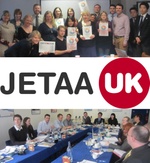 Via the extremely wonderful JETAA UK website:
Via the extremely wonderful JETAA UK website:
New JETAA Mentoring Scheme
JETAA UK is keen to find new ways to help returning JETs with their job search if/when they return to the UK. One popular idea is to set up a mentoring scheme to link returning JETs with other ex-JETs that have already established their careers in the UK.
We are looking for mentors from various working sectors with (in principle) five years work experience post-JET. This is a chance for you to build your leadership skills while giving back to the JET community. Please, please get involved, and pass this on to other ex-JET friends that might be interested.
For possible mentors:
You can sign up to the scheme here:
***Please note your personal information will not be used for any purpose other than the administration of the Mentor Program.***
For returning JETs:
We have a separate sign up sheet for you here:
The deadline for mentor sign-ups is August 30th, 2013. We plan to assign mentors and mentees within two weeks of that date.
*****Also from the JETAA UK website**********
Questionnaire for Careers Networking Events
JETAA UK wants to support JETs with their post-JET careers and provide nationwide professional networking opportunities and JET connect events for its members. In order to do this, we want to know what professional and regional areas you would be interested in and whether you would be willing to help out in any way.
Please fill in this quick questionnaire to help us help you!
https://docs.google.com/forms/d/1-Noev_dsw9Q-NeDAcxQPIOJgf_3QsVTUTP02idrQLmc/viewform
Contact Sarah Parsons, National Careers and Networking Coordinator for more info. on careers@jetaa.org.uk.
Posted by Ashley Thompson (Shizuoka-ken, 2008-10), Community Manager for Nihongo Master and editor of Surviving in Japan.
Japan is home–the place I got engaged, married, and gave birth to my daughter. It’s the birthplace of my husband. I never expected Japan to become so special to me six years ago, let alone that the most important events of my life would happen there. It isn’t a perfect county–no country is–but I love many of its quirks, traits and customs.
We didn’t know what the future held and we had set up a life there.
A sudden turn of events and circumstances forced us to move back to the US in January of this year. We made the decision to move only two months before, as financially and emotionally we weren’t in a place to stay.
I’ve been struggling with reverse culture shock since coming back. I’m not sure I’ve ever felt like I “fit in” here in the States, but I feel it even less so now. I’m trying to adjust while pining for Japan, despite the fact we had plenty of reasons to move back. Read More
News agency Kyodo News has recently been publishing monthly articles written by JET alumni who were appointed in rural areas of Japan, as part of promotion for the JET Programme. Below is the English version of the column from June 2013. Posted by Celine Castex (Chiba-ken, 2006-11), currently programme coordinator at CLAIR Tokyo.
*******
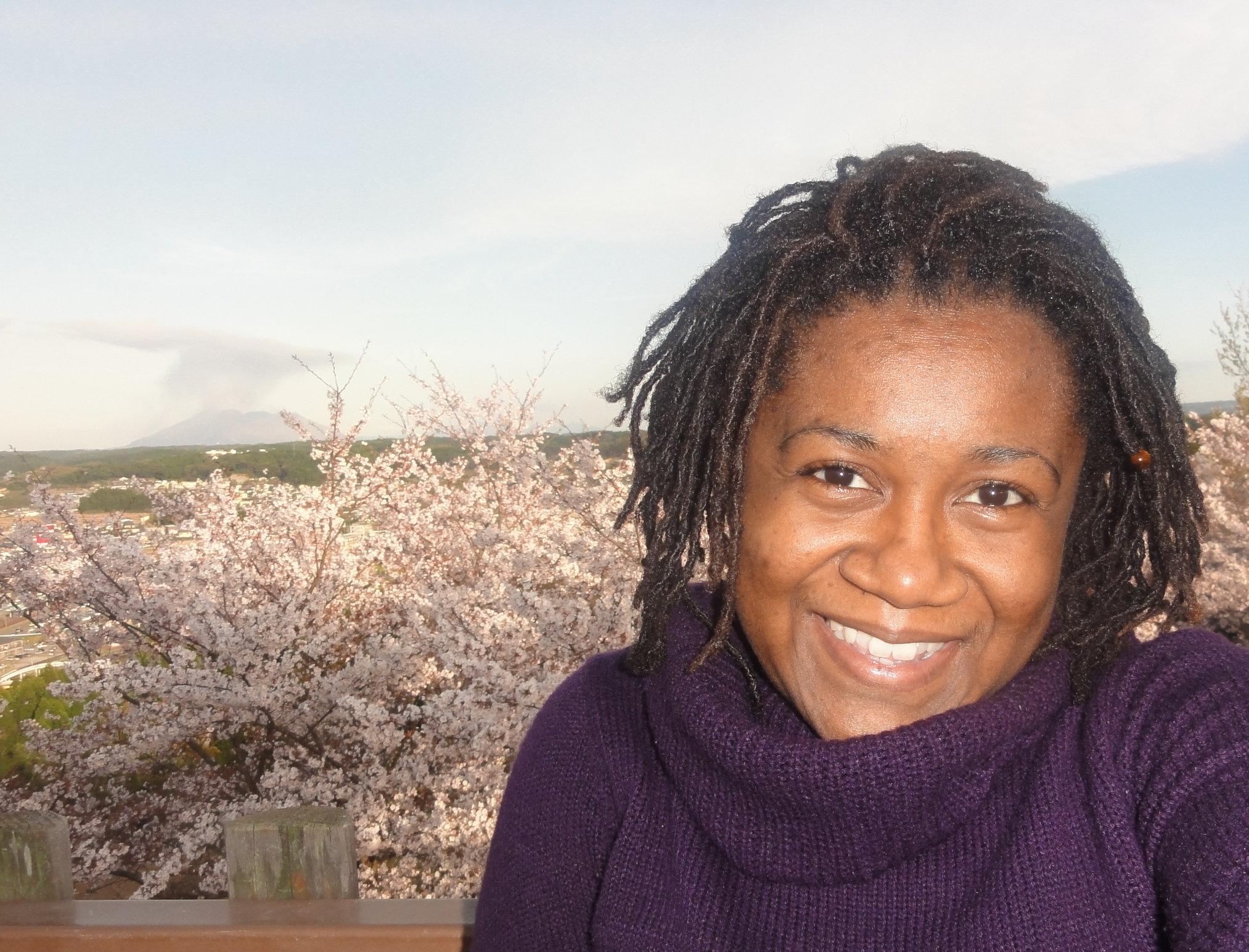
“The four years I spent in Japan were some of the most significant years of my life; years I would not trade for anything in this world.”
Nadya Dee (Kagoshima-ken, Hioki-shi, 2007-11) is a writer, editor and blogger born and raised in the city of Kingston, Jamaica. With a Bachelors degree in English Literature from The University of the West Indies, she joined the JET Programme in 2007 and spent four years living and teaching English in Kagoshima, Japan. She currently works as an independent copywriter and her professional website can be found at http://nadyadee.wordpress.com. As a writer, she intends to write books and collections of short stories which explore the evolution of human consciousness. Through her international experiences she hopes to create written works that speak to the heart and soul of all mankind.
Ichi go Ichi e 一期一会: A Once in a Lifetime Opportunity
Before going to Japan in 2007, I knew nothing about Kyushu let alone Kagoshima. I searched the internet but could only find a little information about the place that I was going to live for a year. I learnt about the active volcano Sakurajima and the “Last True Samurai” Saigo Takamori but I never expected to have such an amazing experience and I never thought that, half way across the world, I would find my second home.
I joined the JET Programme to broaden my international experience with the intention of spending just one year. I left my homeland, Jamaica, and went to Japan as an Assistant Language Teacher to teach English as an alternate form of communication. I went as an ambassador, to increase global awareness and foster a positive relationship between Japan and Jamaica; two countries so far apart but with such similarities. While living in the town of Ijuin, in a city called Hioki on the Satsuma Peninsula in Kagoshima Prefecture, I taught Bob Marley songs, learnt Kagoshima-ben, played taiko, danced in a mud festival, wrote haiku and made great friends who I now consider a part of my extended family.
As a Prefectural ALT I taught at a technical high school, an agricultural high school, a special needs school and two different high schools in and around Hioki and Ichiki-Kushikino City. My responsibilities included lesson planning, team-teaching in Oral Communication classes, motivating students to practice English, editing essays and compositions, helping students to prepare for skit and speech competitions, providing pronunciation and interview preparation support as well as promoting international awareness within Japanese society. I always ensured that all my students learnt about Jamaican food, music and culture in my self-introduction classes.
After a year of adjusting to life in Japan I got the rare opportunity to perform taiko with the ‘Fukiage Seishou Daiko Group’ in four festivals throughout the rural area of Hioki City. In the following years I went on to teach reggae dances to my Japanese friends and we also performed in various shows and matsuri in and around Kagoshima City. Read More
CLAIR Magazine “JET Plaza” series: Mark Flanigan (Nagasaki)
Each month, current and former JET participants are featured in the “JET Plaza” section of the CLAIR Forum magazine. The July 2013 edition includes an article by JET alumn Mark Flanigan. Posted by Celine Castex (Chiba-ken, 2006-11), currently programme coordinator at CLAIR Tokyo.
***********

“It was a wonderful feeling to be able to walk the same pathways, both physical and metaphorical, that I had first walked a decade before. Much has changed since then, in Japan and in my own life, but I will always remain incredibly thankful to CLAIR and the JET Programme for this “Twice in a Lifetime” chance.”
A native of Pittsburgh, PA, Mark Flanigan (Nagasaki-ken, Hirado-shi, 2000-04) spent four years in Nagasaki Prefecture as an ALT and PA . He applied for JET as part of his long record of work, study and travel abroad, which has given him a deeper understanding of global affairs and insight into different languages, people and cultures. Mark Flanigan currently serves as Program Director with the Japan ICU Foundation (日本国際基督教大学財団) in New York City and is a first-year Resident of International House of New York. He came to New York after two years in Tokyo, where he earned his MA in Peace Studies as a Rotary International Peace Fellow at International Christian University (ICU). Mark has also been a US Army Officer, Presidential Management Fellow (PMF), and CSIS Young Leader.
Twice in a Lifetime
Like the great majority of JET programme participants, I look back with fond recollections on my time in Japan. Unlike most of them, however, I also had a second chance to come back and live in Japan once again. It was an amazing experience, and one which I never planned on, which allowed me to compare my two very different “Japans.” Although I lived in that same country twice, the differences in time, location and purpose made for a very insightful analysis of how both Japan and I had changed in the intervening years.
My first years in Japan were spent as a new ALT who had never been to Asia, much less lived there. While I had some experience teaching English in the U.S. and Mexico, I was not an Asian Studies major and was not at all familiar with the Japanese language. Nonetheless, I grew to love my new life in Hirado, Nagasaki Prefecture. I immersed myself in the community, getting involved in the local karate dojo as well as participating in the various seasonal festivals and extracurricular activities like speech contests, international days and so on. My original plan to stay just one year changed into multiple re-contracting, and I actually ended up spending a total of four years on JET (teaching both in Hirado as a municipal ALT and then as a Teacher-Trainer at the Prefectural Education Center in Omura City.)
Returning to the U.S. after four years in Japan, I became busily focused on other areas and gradually lost touch with my various connections to JET and Nagasaki. I went to graduate school for Public Policy at George Mason University in the Washington, DC area and started serving with the U.S. Government after graduation. My life continued to progress in this new direction, which was successful enough and still internationally focused, but less-connected to Japan with each passing year. I found myself forgetting more and more nihongo and generally feeling like my JET experience, while a wonderful time, was becoming a kind of closed chapter in my life. Read More
JET alum finds culinary success with Ramen Shop in Oakland, CA
Thanks to JETAA Northern California Vice-President Mark Frey (Kumamoto-ken, 2002-06) for sharing the following:
At our JETAA Northern California Oakland Ramen Nite tonight, I found out that Jerry (“JJ”) Jaksich, one of the owners/chefs of Ramen Shop, was a JET! (possibly Ebestsu, Hokkaido)
Ramen Shop is getting a ton of buzz in the Bay Area because three alumni of the legendary Chez Panisse started the restaurant. Wait times for table are often an hour. Here are some recent articles about Jerry and Ramen Shop:
Review/overview of Ramen Shop:
http://www.sfgate.com/restaurants/diningout/article/Ramen-Shop-a-hot-spot-in-Oakland-4301369.php
Interview with Jerry about his “ramen epiphany” experience in Japan:
http://insidescoopsf.sfgate.com/blog/2012/09/06/ramen-shop-guys-talk-epic-bowls-japan-experiences-and-local-ramen/
A newsletter with an interview Jerry did with a local izakaya master in 2007, while on JET I assume (scroll down):
http://www.city.ebetsu.hokkaido.jp/kokusai/files/Everyday%20Ebetsu%20No.3.pdf
Blog about the Japanese noodle maker they use:
http://umamimart.com/2012/10/richmen-ramen-shops-noodle-making-machine-from-japan/
CLAIR Magazine “JET Plaza” series: David Namisato (Aomori)
Each month, current and former JET participants are featured in the “JET Plaza” section of the CLAIR Forum magazine. The June 2013 edition includes an article by JET alumn David Namisato. Posted by Celine Castex (Chiba-ken, 2006-11), currently programme coordinator at CLAIR Tokyo.
***********
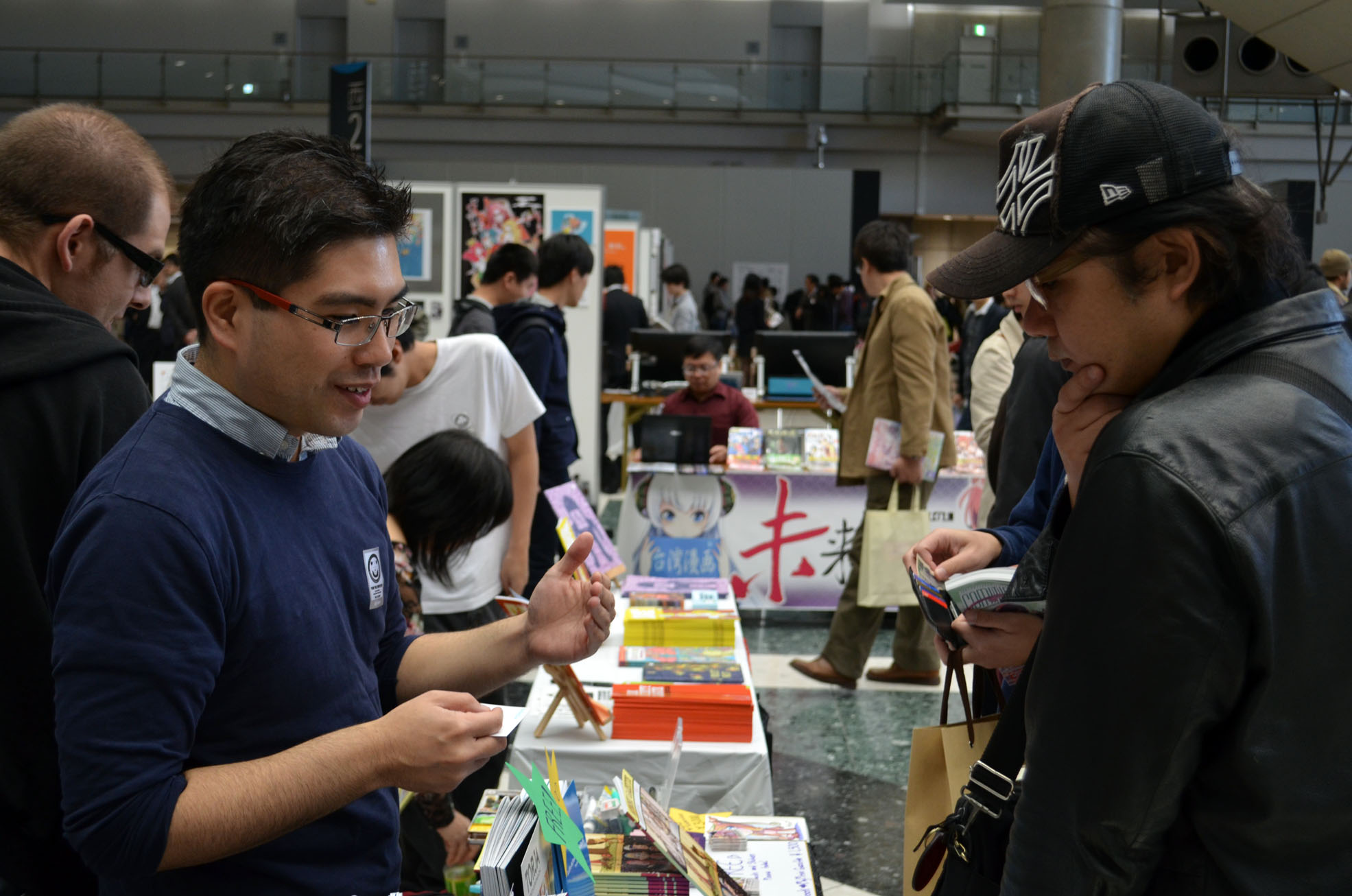
“I went on the JET Programme because I had quit art, but I returned to art because I went on the JET Programme, and thanks to that, here I am, over a decade later, an illustrator and comic book creator, with my JET experience influencing many of my works.”
David Namisato (Aomori-ken, Ajigasawa Town, 2002-04), is from Toronto, Ontario, Canada. He came to Japan on the JET Programme looking for a different career path after animation school, and spent two years in a rural town of Aomori as a CIR. Back in Canada, he started a comic series about the JET Programme experience for the JETAA Toronto Newsletter. Life After the B.O.E. quickly gained popularity inside and outside the JET community, to become a book in 2011. David is now a professional illustrator and has just released his new fantasy comic The Long Kingdom #1.
My Long Journey to the Beginning
In October of 2001, having become disillusioned with art, I decided to drop out of animation school, and to try something completely different and applied to the JET Programme.
Fluent in Japanese and looking for translation and interpretation experience as well as to transition in to a more planning and administrative career, I thought the position of Coordinator of International Relations (CIR) would be a good fit.
I was admitted to the JET Programme in 2002 as a CIR, and went to Japan. However, my contracting organization, Ajigasawa Town in Aomori Prefecture, used CIRs as elementary school English instructors. I had no planning or administrative duties beyond curriculum design and lesson planning, nor did I have translation or interpretation work. Rather, I was entrusted to teach English to children grades one through six at six of the town’s elementary schools.
As an elementary school English instructor, my art skills that I had abandoned were quickly resurrected and came in quite handy as I would use drawings to explain difficult vocabulary and grammar to my students. Slowly my joy of drawing returned, and as it returned, I also began contributing covers to the Aomori AJET newsletter.
In the spring of 2005, six months after my two years as a CIR ended, I decided to give art another try, and I started work as an illustrator creating illustrations and comics for children’s science, and history magazines in Canada. Read More
UK JET alum a finalist for Pearson National Teaching award
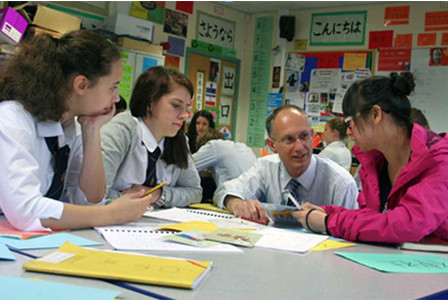 Via the JETAA UK website:
Via the JETAA UK website:
An ex-JET, Crispin Chambers (Hyogo-ken, Awaji-shima), who now teaches Japanese at Tavistock College in Devon has won a teaching award for the South West of England. He is now a finalist for the Pearson National Teaching awards 2013. This is the first time a teacher of Japanese, and an ex-JET has been nominated, and JETAA would like to extend our warmest congratulations!!
Crispin was originally a JET on Awaji Island for 2 years and then became JET programme co-ordinator for a year at CLAIR in Tokyo. After returning to the UK, Crispin gained an MA in Japanese at Sheffield University followed by a PGCE at Nottingham University. He has been teaching Japanese and French at Tavistock since 1996, and has trained several other teachers of Japanese. His lessons are inspiring and fun, and were described by the Teaching Awards judges as “a joy to watch”. You can see his entry and leave him a message here:
You can learn more about Crispin’s fantastic Japanese lessons on a case study of the school written by the Japan Foundation in 2011. Click here orhere to read it.
There are currently two former Tavistock College students on the JET Programme in Saga and Sendai, so Crispin has gone on to inspire the next generation of JETs.

